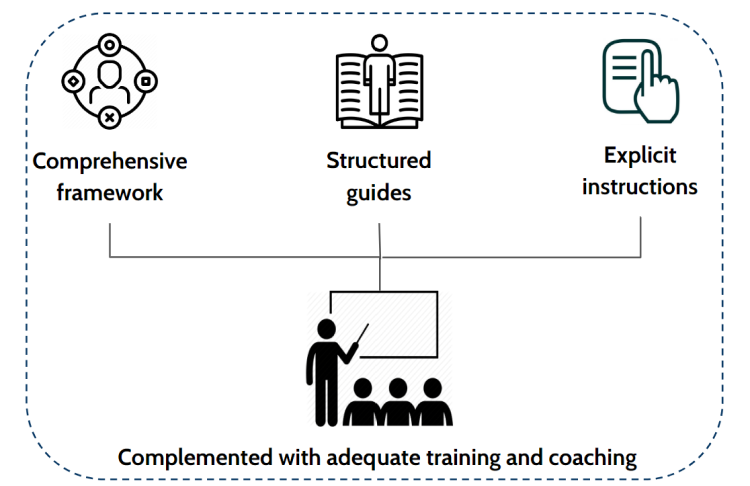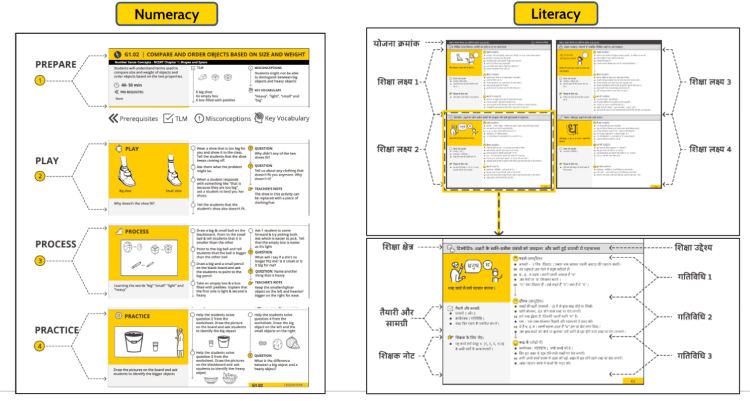Public Goods Features
An easily adaptable tightly knit package of FLN classroom resources and teacher support, aligned to the Structured Pedagogy approach.
Explore All ResourcesStructured pedagogy
Structured Pedagogy approach includes classroom resources to optimise teaching effectiveness and continuous evaluation.
Scientific Principle of Learning
Our Public Goods follow the scientific principles of learning. For Numeracy we use the 5P approach, and for Literacy we employ Balanced Literacy approach.
Public Goods are Open Source
All of our materials are accessible to everyone, freely available, and licensed under Creative Commons, enabling anyone to utilize them.
Structured pedagogy

The Structured Pedagogy Approach is a ‘tightly knit package’ of teacher training, ongoing support and resources for teachers and children (Facing Forward, World Bank, 2018) This approach encompasses a well-coordinated set of resources to improve learning quality. A typical structured pedagogy programme comprises several essential components, including providing students with dedicated textbooks and materials on a one-to-one basis. Additionally, it offers teachers detailed guides with daily lesson plans catering to various specificity levels. Teacher training is a crucial aspect of structured pedagogy, focussing on honing specific teaching skills required for effective lesson delivery. Furthermore, ongoing teacher support, often involving coaching and collaborative communities, ensures the successful implementation of the structured pedagogy programme.
Scientific Principle of Learning

Structured Lesson Plans and Student Worksheets for Numeracy and Literacy are essential for classroom systematic FLN instruction. These lesson plans are designed based on six key principles:
Clear Learning Objectives and Key Vocabulary: Lesson plans outline what students should learn and include important vocabulary.
Active Learning: They engage students actively in the learning process.
Real-Life Connections: Lessons relate to real-life situations, making learning more relevant.
Structured Instructional Routine: Plans define individual lessons, monthly, and yearly goals.
Exploring 'How Things Work': They encourage students to ask questions and understand the "why" behind concepts.
Visual Aids: Lesson plans use icons and visuals to enhance classroom practices.
These principles are rooted in Structured Pedagogy and the Science of Learning, ensuring effective and evidence-based instruction.
Public Goods are Open Sources

All our materials are designed to be inclusive and can be accessed by anyone without any restrictions. They are freely available, meaning there are no costs or barriers to entry for anyone interested in utilising them. Furthermore, we have chosen to license our materials under Creative Commons, a framework that grants people the freedom to use, share, and even adapt our content for various purposes.